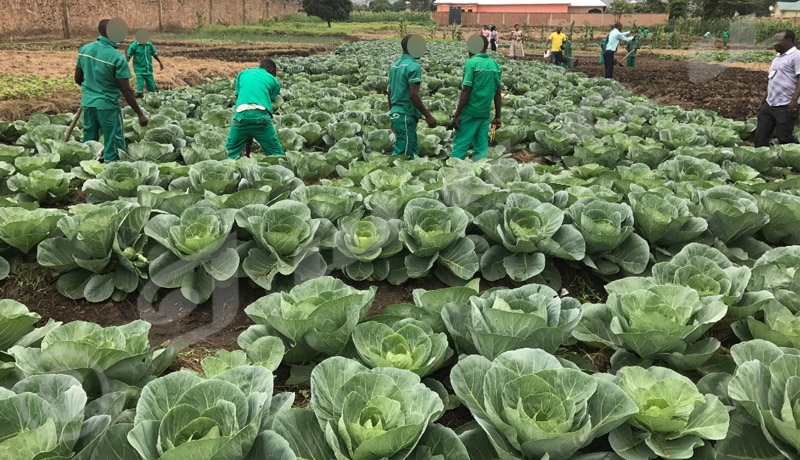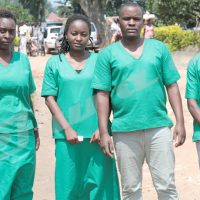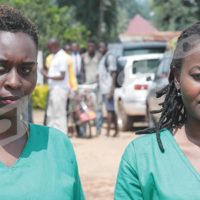The International Committee of the Red Cross has handed two projects of vegetable gardens and one fish project over to the General Directorate of Prison Affairs on this 10 December. The projects of vegetable gardens were carried out in Mpimba and Bubanza prisons while the fish project was implemented in Muramvya prison.

Some prisoners of Mpimba were maintaining a vegetable garden
The products that resulted from those gardens consist of cabbage, lengalenga, onions and tomatoes fields which serve to balance and supplement the daily diet of malnourished prisoners.
“Thanks to this project, some prisoners who suffered from malnutrition are healthy,” said Gervais Hajayandi, General Director of the Prisons Affairs. He admits, however, that all prisoners should consume vegetables if the means allow it. “Mpimba prison accommodates more than 4,100 prisoners, of which about 200 who show signs of malnutrition benefit from this program,” says Hajayandi.
Christian Gneba, coordinator of food security projects at ICRC indicates that this program of vegetable gardens in prisons has an important impact on prisoners’ living conditions. “In 2016, when ICRC started vegetable garden projects in eight prisons, we had an average body mass index of 14.5%, which has increased to 17% in 2019,” explains Gneba.
He says more than 400 prisoners from all the three prisons benefit from this program. He hopes to expand this project so that all prisoners can consume a balanced diet. “We can go beyond that since all the prisons have enough large plots, so it is possible to produce a large quantity that can cover all prisoners,” he reassures.
He explains that the priority is to cover prisoners who suffer from chronic diseases, breastfeeding and pregnant women prisoners. In short, all vulnerable people in the prison. “We plan to add vegetables to the diet of other prisoners. But it will not be permanent, it may be once a week or once a month according to the prison size, “Gneba says.
On the same occasion, ICRC awarded certificates to 26 prisoners from Mpimba and Bubanza prisons who attended training on market gardening techniques and to 43 prisoners from Muramvya who received training in fish farming techniques.


















 IWACU Open Data
IWACU Open Data

